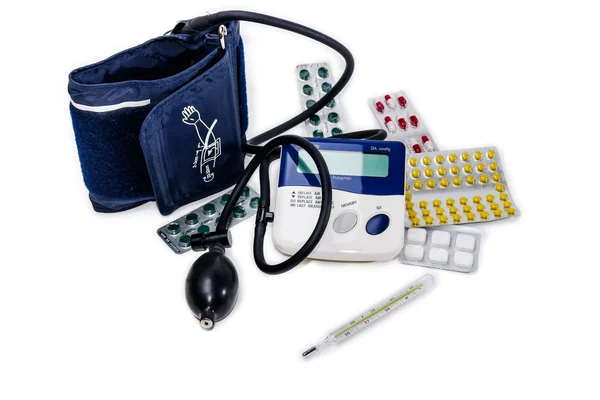Common Heart Medication Masks Alzheimer’s in Blood Test – Researchers have discovered that a commonly prescribed heart medication, Entresto (sacubitril/valsartan), can significantly alter the results of a blood test used to detect Alzheimer’s disease (AD). This finding raises serious concerns about the test’s accuracy and potential for misdiagnosis, especially in patients with both heart failure and cognitive issues.
A new study throws a wrench into the fight against Alzheimer’s disease, revealing a common heart medication’s unintended consequence: skewed results on a crucial blood test for the neurodegenerative disease. This discovery not only casts doubt on the test’s accuracy but also underscores the need for thorough research and cautious interpretation before adopting new diagnostic tools.
The culprit is Entresto (sacubitril/valsartan), a medication frequently prescribed for heart failure. It works by inhibiting neprilysin, an enzyme that helps break down beta-amyloid (Aβ) plaques, the hallmark protein deposits in Alzheimer’s brains. Researchers from the University of Gothenburg and University of Glasgow, in collaboration, set out to investigate Entresto’s impact on an emerging blood test – the plasma Aβ ratio. This test measures the relative levels of Aβ42 and Aβ40 proteins in the blood, hoping to offer a less invasive and accessible alternative to traditional cerebrospinal fluid (CSF) analysis or PET scans.
Their findings, published in JAMA Neurology, painted a surprising picture. While the levels of Aβ42 remained largely unchanged, Aβ40 levels saw a significant uptick in patients taking Entresto compared to those on valsartan alone. This shift caused a drastic drop in the plasma Aβ ratio, essentially creating a false positive signal for Alzheimer’s in all Entresto-treated participants.
The implications are far-reaching. If validated, these findings could cast doubt on the reliability of past research using the plasma Aβ test, as some participants might have unknowingly been on Entresto, skewing the results. This necessitates a critical re-evaluation of existing data and potentially revising conclusions drawn from earlier studies.
Furthermore, the potential for misdiagnosis in patients taking Entresto becomes a pressing concern. Millions worldwide rely on this medication for their heart health, and many among them face cognitive decline as they age. A falsely positive Alzheimer’s diagnosis could lead to unnecessary anxiety, inappropriate treatment decisions, and even ethical dilemmas about informing patients who may have received inaccurate test results in the past.
The researchers urge caution when interpreting the plasma Aβ test in patients taking Entresto. They also recommend contacting individuals who have previously received the test to determine their medication history and clarify the potential for false positives. Additionally, further research is crucial to understand the precise mechanisms at play and potentially develop strategies to mitigate the effect of neprilysin inhibition on the test results.
This discovery serves as a stark reminder of the intricate interplay between medications and diagnostic tools. While novel tests like the plasma Aβ ratio hold promise for a more accessible approach to Alzheimer’s diagnosis, thorough investigation and a cautious approach are paramount to ensure their accuracy and prevent potentially harmful misdiagnoses. The path forward demands close collaboration between researchers, clinicians, and pharmaceutical companies to refine existing tests and develop robust alternatives that can reliably guide the fight against this devastating disease.
Recommendations and ethical considerations:

Given the potential for misdiagnosis, the researchers recommend caution when interpreting the plasma Aβ test in patients taking Entresto. They also suggest contacting past patients who received the test to clarify their medication history and potentially inform them of the potential for false positives.
Key takeaways:
- A commonly used heart medication can interfere with an Alzheimer’s blood test, leading to false positives.
- This finding raises concerns about the accuracy of the test and the potential for misdiagnosis.
- Past research on the test may need to be re-evaluated.
- Caution is urged when interpreting the test in patients taking Entresto.
Also Read : Revolutionizing Water Content Measurement in Ketones: A Deep Dive into Alcohol-Free Reagents

